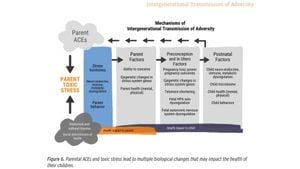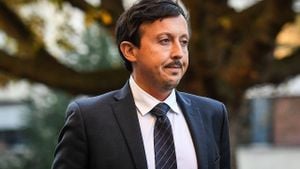Lars Klingbeil, the co-chairman of the Social Democratic Party (SPD), successfully defended his Bundestag seat after the recent elections held on February 23, 2023, for the electoral district of Rotenburg I – Heidekreis. Klingbeil emerged victorious with 41.9% of the votes, cementing his position as the representative for the area. This result, though falling short of his previous 47.6% achievement in 2021, still reflects solid confidence from his constituents amid the backdrop of shifting political dynamics.
The election saw Klingbeil face competition primarily from Vivian Tauschwitz of the Christian Democratic Union (CDU), who garnered 27.4% of the votes. The rise of alternative parties has significantly shifted the election's atmosphere; Omid Najafi, the candidate from the Alternative for Germany (AfD), collected 19.3%, marking the party's growing influence within the region. This increase points to a concerning trend of support for the far-right party, which is observed by parties across the political spectrum.
Voter turnout for this election reached approximately 83.8%, indicating heightened public engagement compared to previous years. This reflects not only interest but also the perceived stakes involved, prompting voters to make their voices heard. According to preliminary reports, the participation rate contrasts sharply with the 74.1% observed during the last Bundestag elections, highlighting a significant rallying of citizen involvement.
Klingbeil expressed his gratitude for the support he received, stating, "das Wahlergebnis sei für ihn ein toller Vertrauensbeweis" (the election result is for him "a great vote of confidence") during his remarks to the Rotenburger Kreiszeitung. His optimism might stem from the confidence shown by his party members, but he acknowledged uncertainties about the national election outcomes, reflecting on the challenges the SPD faces. "Da gibt es auch noch zwei, drei andere Dinge, an denen ich gemessen werde" (There are still two or three other things by which I will be measured), he noted, indicating awareness of broader political dynamics impacting his party's future.
While Klingbeil's victory is noteworthy, Tauschwitz's campaign has shown promise for the CDU. Ensuring strong representation from the opposition, she faced the election with tenacity but will likely need to pivot her strategies to regain lost ground. The competition between these two parties showcases the essence of democratic engagement and the shifting political façade of Germany’s political theatre.
Across the electoral spectrum, other candidates have reported disappointing results, particularly Canina Razicka of the Greens, who captured only 5.3% of the votes. The Free Democratic Party's (FDP) Gurdan Kerti and Günter Scheunemann of the Free Voters followed with 2.4% and 2.1%, respectively. Such results suggest less resonance for smaller parties within the current electoral climate, particularly as traditional strongholds shift.
Notably, the AfD's gains have sparked concern among mainstream parties. Omid Najafi remarked, "Die AfD hat einen besorgniserregenden Gewinn an Stimmen zu verzeichnen" (The AfD has recorded concerning gains in votes), emphasizing the urgent need for larger parties to engage effectively with broadening segments of the electorate. Such sentiments reflect the broader struggle faced by traditional parties as they confront growing populism.
Rotenburg's independent mayor, Torsten Oestmann, remarked on the efficiency and integrity of the electoral process and expressed optimism for democracy's outcome, praising the electoral participation as positive. Similarly, local officials exerted efforts to encourage participation and maintain transparency during the election.
The results of this election mark not only the future of Lars Klingbeil and his ability as the SPD leader but also set the stage for upcoming legislative challenges. Given the current political discourse, Klingbeil may need to navigate potentially adversarial relations with the CDU and AfD as they take on significant roles in shaping legislative responses to the pressing issues dominating the national agenda.
With the SPD's position at stake and mounting pressures from both the left and the right, Klingbeil's leadership will likely be tested as he seeks to uphold the SPD's influence even amid fluctuative public sentiment. Observers will be eager to see how he manages both his duties at the district level and broader responsibilities as the national party leader, particularly as Germany addresses various societal and economic challenges.
The election results reveal more than just numbers on paper; they spotlight the prevailing currents influencing Germany's political and electoral landscapes. Klingbeil’s immediate tasks will involve consolidations of support within the SPD, strategic planning for the future, and addressing the demands underscored by electorates seeking stability and progress.



